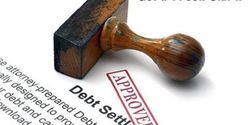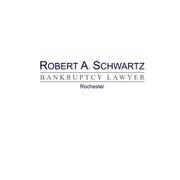Rochester Attorney Explains Your Business Bankruptcy Options

Owning a small business in financial distress can be extremely stressful. Business owners must meet demands from suppliers and keep their payroll current just to stay in business. They often owe significant amounts for debt related to the startup of the business. The owners may have overwhelming personal debt. The bankruptcy code offers business owners, corporations, and partnerships a variety of options, some of which allow for restructuring of debts and continuation of the business operations.
According to Robert A. Schwartz, a Rochester-based attorney with three decades of experience, business bankruptcy filers have three options to choose from.
Chapter 7 Bankruptcy
Businesses which need to close, but hope to do so in an orderly fashion, can utilize Chapter 7. The business' assets will be liquidated by the trustee and the proceeds will be distributed to creditors. Priority debt such as taxes and payroll will be paid first. If creditors have attached or seized assets prior to filing, the Trustee may be able to recover those assets so that their value can be paid to the creditors in an orderly fashion according to priority. Chapter 7 may be used by corporations, llcs, partnerships, and sole proprietors.
Chapter 11 Bankruptcy
 This bankruptcy program allows businesses to restructure their debt through a reorganization and payment plan approved by the court. While the bankruptcy is being processed, the company can continue operations and may return to financial health. For corporations, partnerships, and llcs, a Chapter 11 is the only form that allows debt to restructured. Chapter 11 cases are closely monitored by the Office of the U. S. Trustee so confirm that all conditions of the restructuring are being met.
This bankruptcy program allows businesses to restructure their debt through a reorganization and payment plan approved by the court. While the bankruptcy is being processed, the company can continue operations and may return to financial health. For corporations, partnerships, and llcs, a Chapter 11 is the only form that allows debt to restructured. Chapter 11 cases are closely monitored by the Office of the U. S. Trustee so confirm that all conditions of the restructuring are being met.
Chapter 13 Bankruptcy
Like a Chapter 11, a Chapter 13 allows a business to stay in operation and catch up on missed payments on secured and priority debt. A portion of the business’s unsecured debt is also paid through the Court approved plan. Chapter 13 is only available to companies run by individual sole proprietors. Because the filer is an individual, the filer will need to disclose and list all of their property and all of their debt, not just the property and debt attributable to the business.
If you're unsure which option is best suited for your situation, turn to Robert A. Schwartz for help. Mr. Schwartz will take a thorough look at your finances and recommend the best path forward. Learn more about the legal services offered online, or call (585) 334-4270 to schedule a consultation.
About the Business
Have a question? Ask the experts!
Send your question

